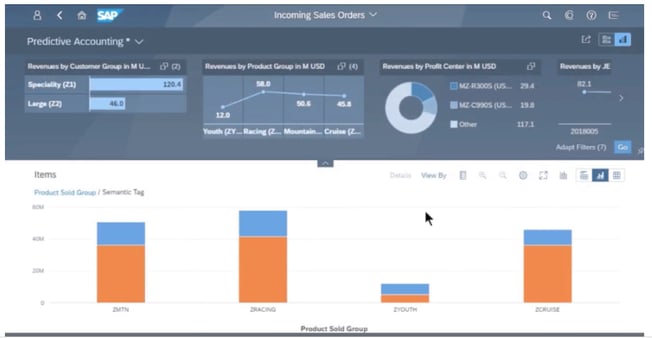Accounting has traditionally been a backwards looking profession. Let me be clear that I did not just call accountants backwards people, but in general their mandate has been to document, audit and verify what has already happened.
However, things are changing rapidly in the world of accounting. As I covered in a recent blog post onThe Changing Role of the CFO, there is a major shift toward broader and more forward-looking responsibilities within the Office of the CFO and the accounting profession in general.Some of the forces helping make these changes a reality are enterprise-wide integration of advanced analytics, unifying financial information in a single-source-of-truth, movement toward continuous-close processes and the rise of Machine Learning.
These forces are helping enable the move to Predictive Accounting, which in essence is the use of all available data to paint a picture of financial outcomes before they actually happen.
Why is Predictive Accounting important? Well, as the pace of change ramps up and decision-cycles shrink, it’s no longer sufficient to react to events after they happen. As famously said by hockey great, Wayne Gretzky, you have to “skate to where the puck is going to be, not to where it has been.”
In particular the intelligent ERP with integrated analytics combined with Machining Learning has now opened wide the door for companies to improve their ability to look ahead and predict outcomes before they happen. This greatly improves their ability to “see where the puck is going to be” and to get there ahead of it.
For example, as new sales orders are entered into the system, an intelligent ERP can compare them with previous similar orders and provide predictions regarding revenues, cost of sales, margin and inventory requirements. It then can create journal entries for the future results of the sales orders in a separate extension ledger. This Predictive Accounting process enables decision-makers to visualize a credible version of future outcomes and to make better present-day decisions.

In addition to helping drive better real-time decision-making, Predictive Accounting can also streamline core accounting activities such as periodic closing cycles, financial reporting and disclosures. By using predictive data to model accounting disclosure information, such as 10K and 10Q reports, the Office of the CFO can get ahead of the game and shorten the actual closing process, while also helping to improve accuracy and avoid either reporting delays or restatements.
The proliferation of Machine Learning is also helping to dramatically accelerate the timeliness, accuracy and cost-effectiveness of Predictive Accounting. Basically, Machine Learning is a field of artificial intelligence (AI) that uses statistical techniques to give computer systems the ability to "learn" from data, without being explicitly programmed.
When integrated with the intelligent ERP, Machining Learning can streamline and improve the Predictive Accounting process by enabling the system to automatically acquire and analyze data and to evaluate its previous predictions and models as compared with actual outcomes.
In essence, Machine Learning lets the intelligent ERP grade its own performance and proactively make improvements to its methods and accuracy. This frees up precious accounting staff resources to focus on managing and using the results rather than spending lots of their time “feeding the system”.
From the Office of the CFO’s perspective, the combination of intelligent ERP, advanced analytics and Machine Learning empowers financial staff to both predict the future and to improve actual results.
Predictive Accounting can help define expected results ahead of time while providing accounting staff with proactive modeling of reports to improve accuracy and timeliness of financial disclosures. It also can help C-suite decision-makers to visualize business-critical issues before they become reality, thereby giving them more time to formulate future plans and to improve future outcomes.

